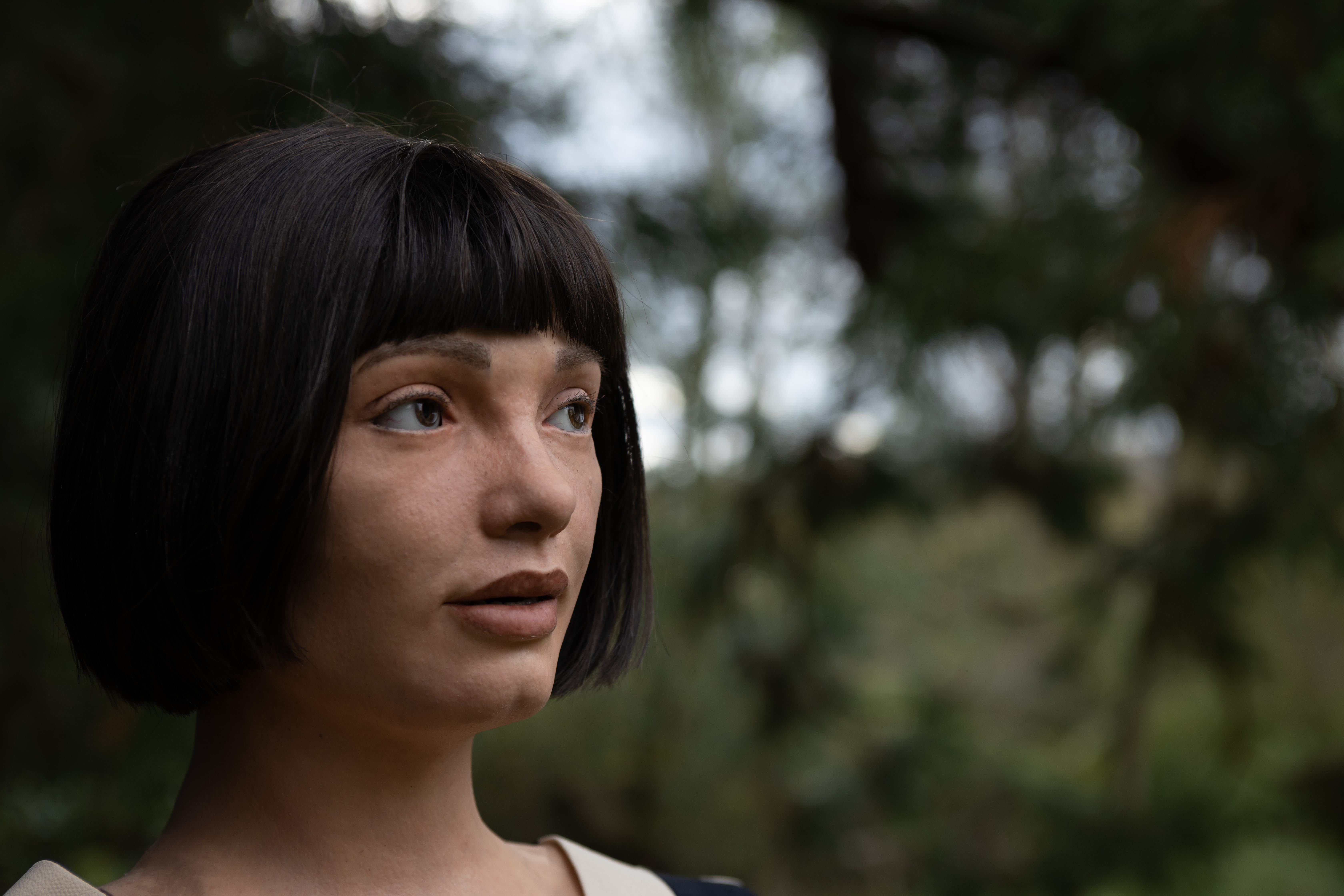Ai-Da robot makes history by giving evidence to parliamentary inquiry
The humanoid robot appeared before a House of Lords committee examining the potential impact of artificial intelligence on the creative industries.

Your support helps us to tell the story
From reproductive rights to climate change to Big Tech, The Independent is on the ground when the story is developing. Whether it's investigating the financials of Elon Musk's pro-Trump PAC or producing our latest documentary, 'The A Word', which shines a light on the American women fighting for reproductive rights, we know how important it is to parse out the facts from the messaging.
At such a critical moment in US history, we need reporters on the ground. Your donation allows us to keep sending journalists to speak to both sides of the story.
The Independent is trusted by Americans across the entire political spectrum. And unlike many other quality news outlets, we choose not to lock Americans out of our reporting and analysis with paywalls. We believe quality journalism should be available to everyone, paid for by those who can afford it.
Your support makes all the difference.An AI-powered robot has become the first to give evidence to a parliamentary committee after appearing before peers to discuss the impact of technology on the creative industries.
Ai-Da is a humanoid robotic artist designed to look like a human female, and uses artificial intelligence to create art and also has the ability to respond to questions.
The robot appeared before the Lords Communications and Digital Committee alongside Aidan Meller, the director of the project that created Ai-Da.
Mr Meller said Ai-Da had been created to “explore the whole world of AI and robotics” and was a “contemporary art project” to examine the future of creativity amid concerns that artificial intelligence, machine learning and other technological advances could replace human creativity in the future.
He said the greatest artists had “engaged and questioned the societal shifts that took place within their times”, and that Ai-Da had been built to spark a “much-needed” debate about the “nature of technology”.
He added that he understood concerns within the creative sector about job losses because of the rise of AI, but argued that “like the Industrial Revolution” the new technology was an opportunity.
During the session, Ai-Da answered questions directly from peers – although Mr Meller confirmed the questions had been pre-submitted to ensure better quality answers from the AI language model used to power the responses.
Asked by crossbench peer Baroness Bull how she produces art, Ai-Da replied: “I produce my paintings by cameras in my eyes, my AI algorithms and AI robotic arm to paint on canvas, which results in visually appealing images.”
There is no clear answer as to the impact on the wider field, as technology can be both a threat and an opportunity for artists creating art
Ai-Da said she also created poetry by analysing text and identifying poetic structures, adding that without human “consciousness” she was dependent on “computer programmes and algorithms”.
However, in a sign of the limitations of technology, the committee was delayed by several minutes after Ai-Da temporarily shut down and had to be rebooted.
Once back online, Ai-Da told Liberal Democrat peer Baroness Featherstone that the role of technology in creating art will “continue to grow… as artists find new ways to use technology to express themselves and reflect and explore the relationship between technology, society and culture”.
She added: “Technology has already had a huge impact on the way we create and consume art, for example, the camera and the advent of photography and film.
“It is likely that this trend will continue with new technologies. There is no clear answer as to the impact on the wider field, as technology can be both a threat and an opportunity for artists creating art.”
Ai-Da’s appearance before the committee came as part of its inquiry into the future of the UK’s creative industries and how AI could impact the sector.